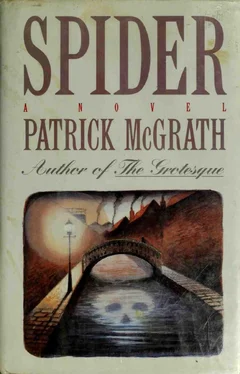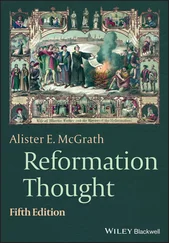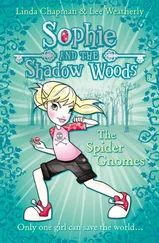Yes, I roll my endless cigarettes, and as I do I watch my fingers, these long, spidery fingers that seem often not to belong to me at all; they are stained a dark yellow round the tips, and the nails are hard and yellowy and hornlike, and come curving over the ends like hooks, hooks that Mrs. Wilkinson seems now determined to snip off with her kitchen scissors. They are always slightly trembling, these days, these long, yellowing, hooknailed fingers of mine, I really don’t know why. But it was a dingy place, the London of my boyhood, a clotted web of dark compartments and narrow passageways, and sometimes when I recognize one of its features I return in my mind to those days without even realizing what I’m doing. This is why I intend to keep a journal, so as to create some order in the jumble of memories that the city constantly arouses in me. Today’s date: October 17th, 1957.
Another gray and cheerless morning. I was up early to write my journal (I’m not very easy in my mind about hiding it in the chest of drawers; later maybe I will try and get it under the linoleum) and whenever I glanced up at the grimy little window over the table I saw merely a thick blanket of grayness that grew slightly paler as somewhere behind it, somewhere out beyond the North Sea, the sun rose into a bleak wintry sky. This house often feels to me like a ship, did I mention this already? It points east, you see, toward the open sea, and here I am up at the top of the east end of it, like a sailor in the crow’s nest, as we slip downstream with our cargo of dead souls!
We take our meals in the kitchen here. Mrs. Wilkinson has a small bell; she stands at the foot of the stairs and shakes it, and slowly the dead souls emerge from their rooms and come drifting down with blank faces and rigid limbs, and when I appear—I’m always the last, living as I do on the top floor— they will all be seated around the table in the kitchen, silently eating porridge. The cook is a squat little foreign woman with a wispy black mustache; she stands at the stove with her back to the room, peering into her steaming pots of giblets and offal, smoking cigarettes and wiping her nose with the back of the same hand that stirs the stew.
I take my place at the end of the table. There is a stiff plastic cover spread over the table (like a tarpaulin), already spotted with gobs of porridge and smears of milk—we don’t get real milk here, the woman mixes up a powder, so it’s a watery sort of a fluid with lumps floating in it. Cups and plates are of thick off-white porcelain, and we’re permitted to use real knives and folks. Mrs. Wilkinson is never present unless she has something to say, she is in her office off the hallway by the front door. I attempt a spoonful of porridge; it is poisonously bad. The dead souls pay me no attention. In stupefied, wordless abstraction they hungrily devour the porridge and slurp their tea, various small body sounds escaping from them as they do so, little farts and burps and so on. One by one they finish and drift off to the dayroom. The foreign woman gathers the plates and scrapes off the porridge into a dustbin by the stove. Already her pots of weeds and innards are bubbling energetically; without removing the cigarette from her mouth she leans over, sniffing, to give them a stir; ash falls into the stew.
After breakfast I try to get out as fast as I can. This is not easy, for Mrs. Wilkinson sits in her office by the front door like the three-headed dog of hell. “Mister Cleg!” she barks, looking up from her paperwork. I freeze; the woman terrifies me. I stand there shuffling guiltily as she gets to her feet and takes off her spectacles and eases her great frame sideways round the desk. “Mister Cleg!” she cries. She is such a loud woman! I cannot look her in the eye. She leans against the frame of the office door. Seconds tick by with excruciating slowness. She holds a pencil in her plump, strong fingers; she toys with it, and I imagine she will snap it in two—as a warning! “We won’t be late for lunch again, will we, Mr. Cleg?”
I mumble something, my eyes on the floor, on the wall— anywhere but her stern face! At last she releases me. “Enjoy your walk, Mr. Cleg,” she says, and off I scuttle. It’s not surprising, is it, then, that I spill my tobacco on the ground when I’ve reached the haven of my bench once more, my hands are trembling so? It’s not surprising that I should relish my solitude here, my solitude and my memories—she is a tartar, that woman, a harpy, and thank God I shall soon be seeing the last of her.
When I was growing up we lived on Kitchener Street, which is on the other side of the canal, east of here. Our house was number twenty-seven, and like the rest of the houses on the street it had two rooms upstairs, two rooms downstairs, and a walled-in back yard with a door into the alley and an outhouse containing a toilet. The front door had a grimy fanlight over it in the form of a setting sun and there was also a coal cellar that you reached through a door that gave off the downstairs passage and down a steep flight of stairs. All the rooms in the house were small and cramped, with low ceilings; the bedrooms had been wallpapered so many years before that the paper was moist and peeling, and badly discolored in patches; the large spreading stains, with their smell of mildewed plaster (I can smell it now!) formed weird figures on the fading floral pattern and stimulated in my childish imagination many fantastic terrors. The downstairs passage ran past the front parlor (which was rarely used), past the cellar door, and into the kitchen, where above the sink and beside the back door there was a window that looked out onto the yard. My bedroom was directly above the kitchen, so my window had a view of the yard, and also of the alley beyond and the backs of the houses on the next street over. Perhaps the only way in which our house differed from the other houses on Kitchener Street was that we owned it: my mother’s people were in trade, and they’d bought the house for my parents when they were married. I remember hearing this brought up when my mother and father argued in the kitchen at night, for my father believed that my mother’s family looked down on him, and I think they did. Nonetheless it was a rare family that owned its house in those days, and it must have been a source of envy for the neighbors; perhaps this helps account for my parents’ curious isolation within those teeming streets and alleyways.
On Sunday mornings I often watched my father leaving for the allotments, where he had his vegetable garden. I’d see him outside the back door, in the cool, misty air of the early morning, his breath turning to smoke as he pulled on his cap and wrapped a scarf tightly about his throat, then went down on one knee to knot a piece of string round each of his ankles so his trousers wouldn’t be caught in the bicycle chain. The bicycle was leaning against the outhouse wall; he’d wheel it down the yard and through the gate into the alley, and shortly afterwards I’d see him cycling away.
He rode a bicycle in a rigid, upright manner, my father, and I can picture him now, on autumn mornings, in the old threadbare jacket he used for gardening, his cap pulled low, gliding through the deserted streets and taking a sort of grim pleasure in the fresh, smoky silence and in his own solitude within it. He passed the milkman, whose horse snorted and pawed the ground before unloading a steaming heap of ginger-colored bricks of dung upon the cobblestones, and as it snorted great clouds of smoke issued from its blackened and distended nostrils. Sometimes my father would get off his bicycle and trowel the fresh dung into a paper bag, later to add it to his compost heap. Then on through the quiet narrow streets in a southwesterly direction toward the gasworks which, lightly cloaked in the early morning mist, achieved a sort of grandeur, and mystery, despite the smell. Across the canal, then up a long rise and down Omdurman Close to the railway embankment. Halfway across the railway bridge, when he was within sight of the allotments, he dismounted and took a moment or two to roll himself a cigarette. By means of this small ceremony he was able to savor for a few sweet seconds more the prospect of the day that lay before him.
Читать дальше












